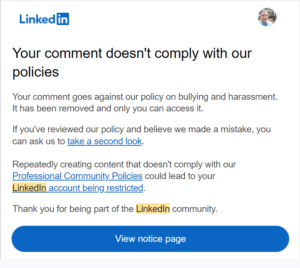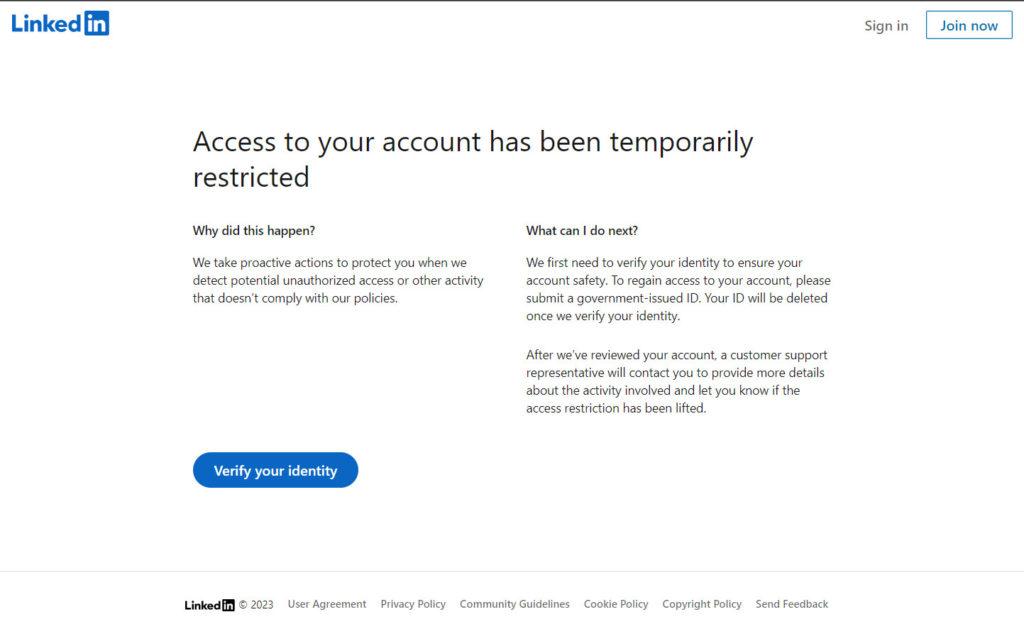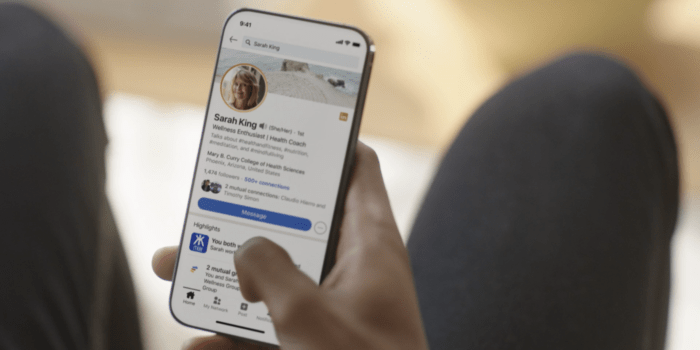(Ben Sellers, Headline USA) Under the pretense of being a career-builder site, Microsoft-owned LinkedIn has flown largely below radar, but it may now be one of the most egregious social-media offenders in terms of practicing anti-conservative bias and censorship.
On Tuesday, the site confirmed my long-held suspicions that it sought to police conservative speech by implementing a de-facto ban on me—seemingly for a post that denounced the New York Times’s fake-news coverage of the Durham report.
Specifically, I had posted a response to Meredith Kopit Levien, the president and chief executive officer of the Times, expressing my hope that the newspaper would return its Pulitzer Prize for reporting on the Russia-collusion hoax in the wake of special counsel John Durham’s final confirmation that the story was entirely fabricated by the Hillary Clinton campaign with help from powerful government agencies.
Levien—with whom I had previously corresponded amicably in the context of my work for the University of Virginia’s Cavalier Daily (we both are alumni of the student newspaper)—had made a particularly tone-deaf post on LinkedIn. In it, she referenced a recent statement by Times publisher A.G. Sulzberger about the paper’s mission, claiming it demanded at all times a deep analysis and frequent skepticism of the public narrative.
Among Levien’s many commenters, I noted that the “lovely sentiment” seemed a bit out of step with the paper’s actual actions when it came to reporting on inconvenient facts. I later issued a post of my own calling on fellow journalists to urge the Times to return its ill-gotten Pulitzer award, and tagging Levien in my post.
Not long thereafter, around 11 a.m. Tuesday, a notice arrived from LinkedIn’s so-called Trust and Safety Team that I had violated its policies on “bullying and harassment.”

The message referred me to the site’s “Professional community policies” page, but that bromide-laden resource offered no further clarification as to how my post constituted bullying against the one of the nation’s largest newspapers or its executive officers.
“We don’t allow bullying or harassment,” said the site. “This includes targeted personal attacks, intimidation, shaming, disparagement, and abusive language directed at other members. Do not reveal others’ personal or sensitive information (aka “doxing”), or incite others to do the same. You may not engage in trolling or other repetitive negative content that disrupts other members or conversations on the platform.”
My admonishment email also included a link to appeal my case, but when I attempted to log in, I was met with the following notice that I had been “restricted.”

I have since submitted (against my better judgment) a photo of my driver’s license to verify my identity. However, this step seems little more than an undue hurdle put in place to enable an indefinite delay in the platform’s response.
A full day later, I have yet to hear back that my identity has been confirmed and, accordingly, have received no explanation about the underlying issue.
A PATTERN OF SUPPRESSION
For the sake of full disclosure, I have been chastised a handful of times previously by LinkedIn, demanding that I take down politically charged posts that sharply rebutted the comments of online trolls and leftist idealogues.
Apart from my comments to Levien, I also had recently reacted to a comment from one such troll, an individual by the name of Ciaran Flanagan, who had responded with misleading information to a post by “Crossfire Hurricane” victim George Papadopoulos that celebrated the release of the Durham report.
Although I don’t recall the exact wordage of that post (and can no longer access my account to review it) it was equally innocuous as the Times criticism, falling well short of what any reasonable person would consider bullying or harassment.
I also have used LinkedIn to showcase my professional writing portfolio, much of which is political in nature, and have suspected a shadow ban on content (which the company has denied). But I had not posted any stories on the site for about a week, casting doubt on the possibility that they had triggered the latest suppression.
In any event, the platform, which regularly pushes woke storylines in its own newsfeed, has demonstrated a clear double standard. But worse than that, its apparent efforts to suppress criticism of the Russia hoax evoke an all-too-familiar scenario for conservative users.
I had long relied on LinkedIn as a networking tool, both in a personal capacity and in my Cavalier Daily volunteer work, but I first began posting my own articles and political commentary to the site in 2020, at a time when censorship efforts on Facebook and Twitter were at their zenith.
I got surprisingly few negative reactions, although no matter how large my network of conservative allies grew, the engagement never seemed to grow accordingly.
Nonetheless, the site was useful, to some extent, for hiring purposes and source cultivation (although it suspiciously removed job posts that mentioned Headline USA’s political orientation).
And I was largely able to avoid the same scrutiny and algorithmic suppression that other sites had to offer by virtue of the fact that it was mainly oriented toward professional networking, and because the audience I had was mostly likeminded.
PARTISAN PRACTICES
Despite its relatively low profile, it is clear that LinkedIn engages in the same practices and for the same reasons as the more prominent leftist social-media publishers—and thus warrants the same level of oversight.
The company’s dubious history of political meddling is not in doubt. Most notably, co-founder Reid Hoffman has been behind at least one effort to use bots to actively push disinformation and election interference.
During Alabama’s 2018 special election to replace then-Attorney General Jeff Sessions, Hoffman donated $750,000 to American Engagement Technologies, a group that falsely sought to link GOP senatorial candidate Roy Moore to Russia. Democrat Doug Jones won the race, striking a major coup in the deep-red state against then-President Donald Trump and his agenda.
A month after the election, Hoffman admitted his error and apologized. But far from learning his lesson, he has continued to bankroll partisan attacks, such as the recent lawsuit against Trump by New York socialite E. Jean Carroll.
That case and its $5 million verdict stand a strong chance of being overturned on appeal (somewhere outside of New York City’s notoriously slanted bailiwick), but it has proven infinitely useful for the Left in feeding the bogus narrative that Trump is a dangerous rapist.
Meanwhile, Hoffman himself has no scruples about consorting with convicted sex-offenders, as revealed by the bombshell Wall Street Journal reports earlier this month that he visited the private island of billionaire pedophile Jeffrey Epstein while on a fundraising trip.
That puts him in good company with Microsoft founder Bill Gates—another personal acquaintance of Epstein, who died of reported suicide in 2019 while being held in a New York jail.
With any luck, some accountability may be forthcoming.
According to Rep. Dan Bishop, R-N.C., a member of the House Judiciary’s Weaponization Subcommittee, LinkedIn has been lumped in with other social-media networks being investigated for censorship practices.
Nonetheless, Bishop noted that the committee’s work overall has faced delays, in part due to shortages in staffing and resources as the GOP House majority attempts to conduct oversight on the Biden administration’s many Dumpster fires.
“Although I am not satisfied with the pace, the staff has a broad swath of subpoenas outstanding to social media operators, INCLUDING LinkedIn,” Bishop told me on Wednesday.
In the meantime, should I regain access to the site and my network of more than 7,000 connections, I will continue to use it as a tool in the fight against censorship, even against LinkedIn itself.
Ben Sellers is the editor of Headline USA. Follow him at twitter.com/realbensellers.

